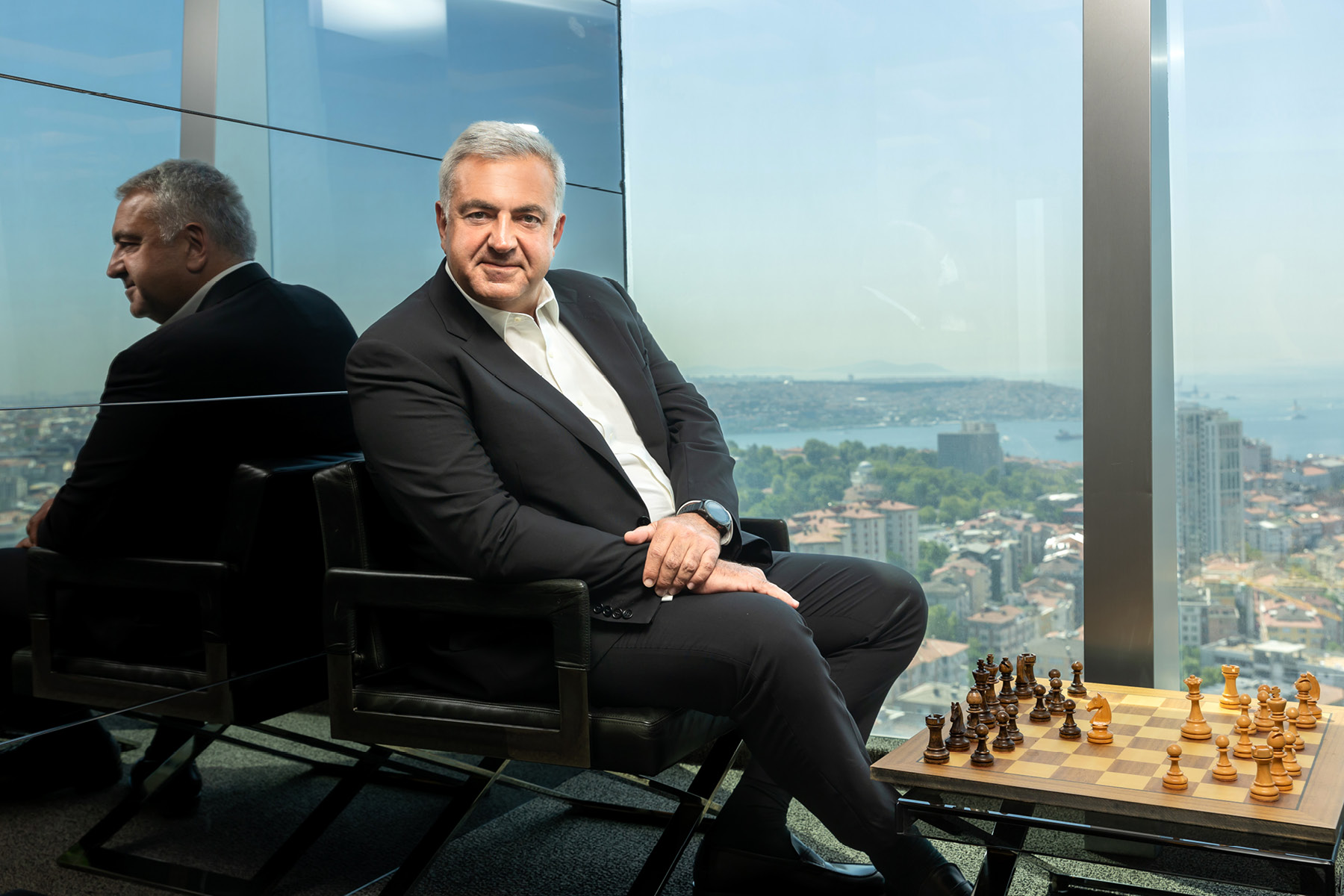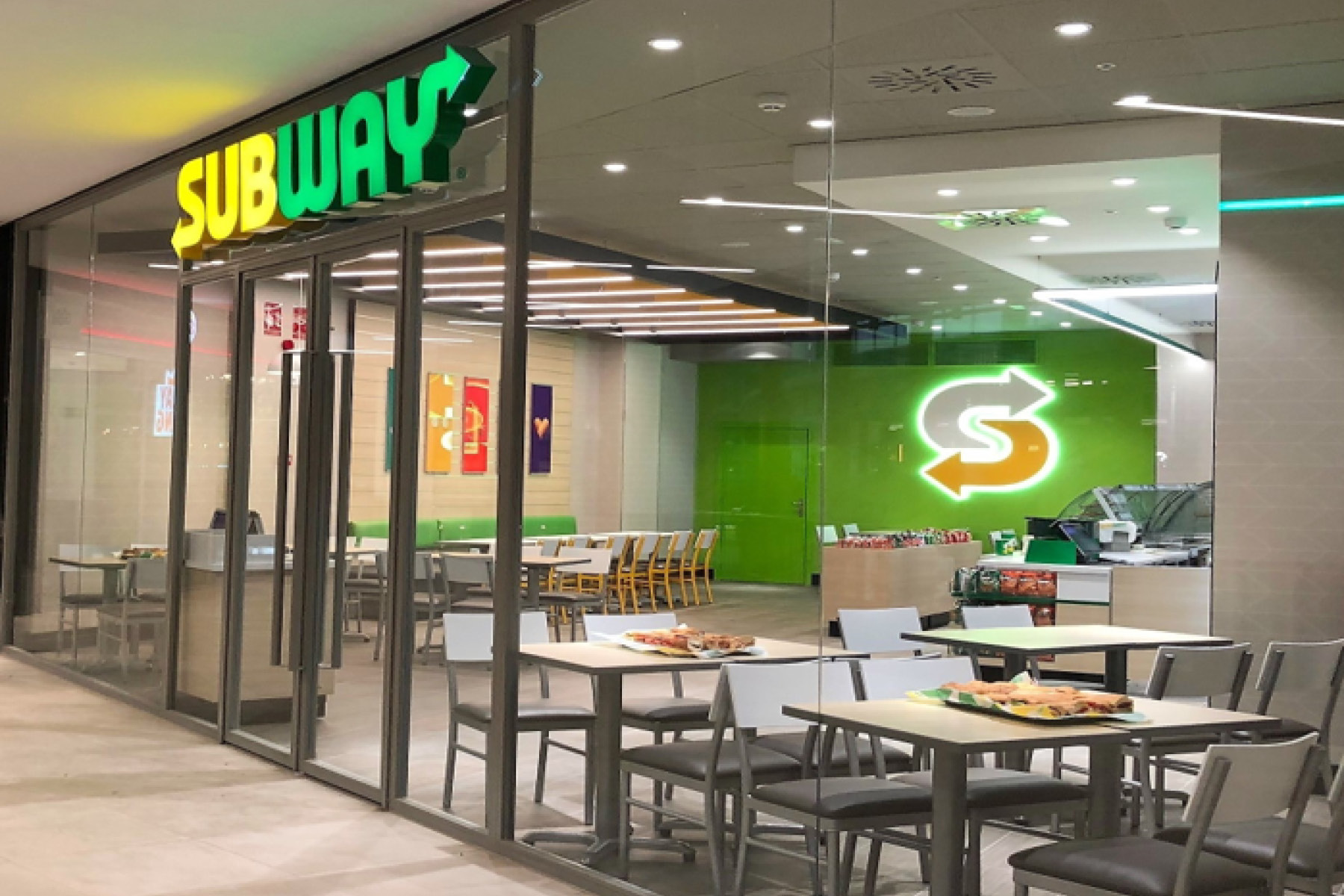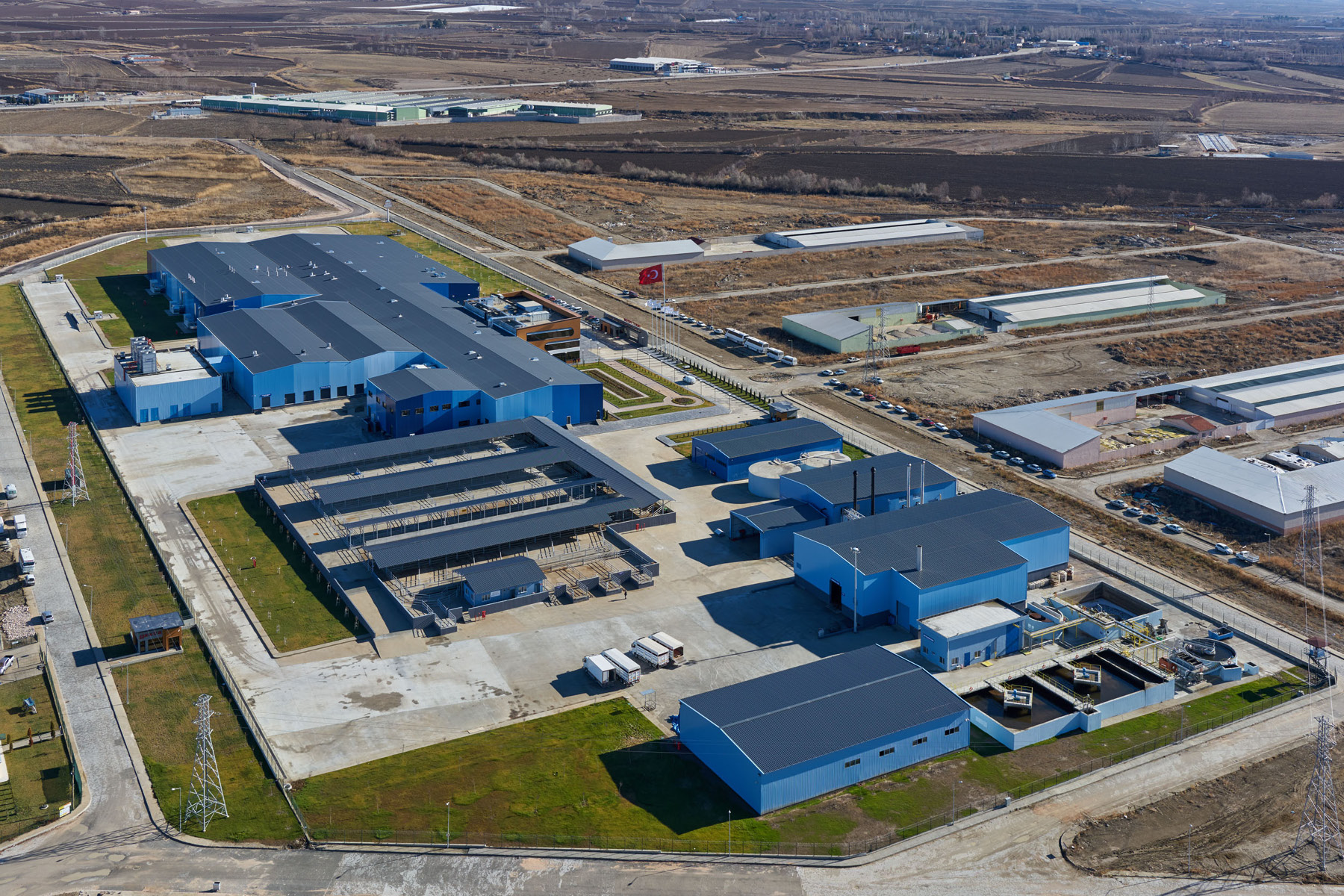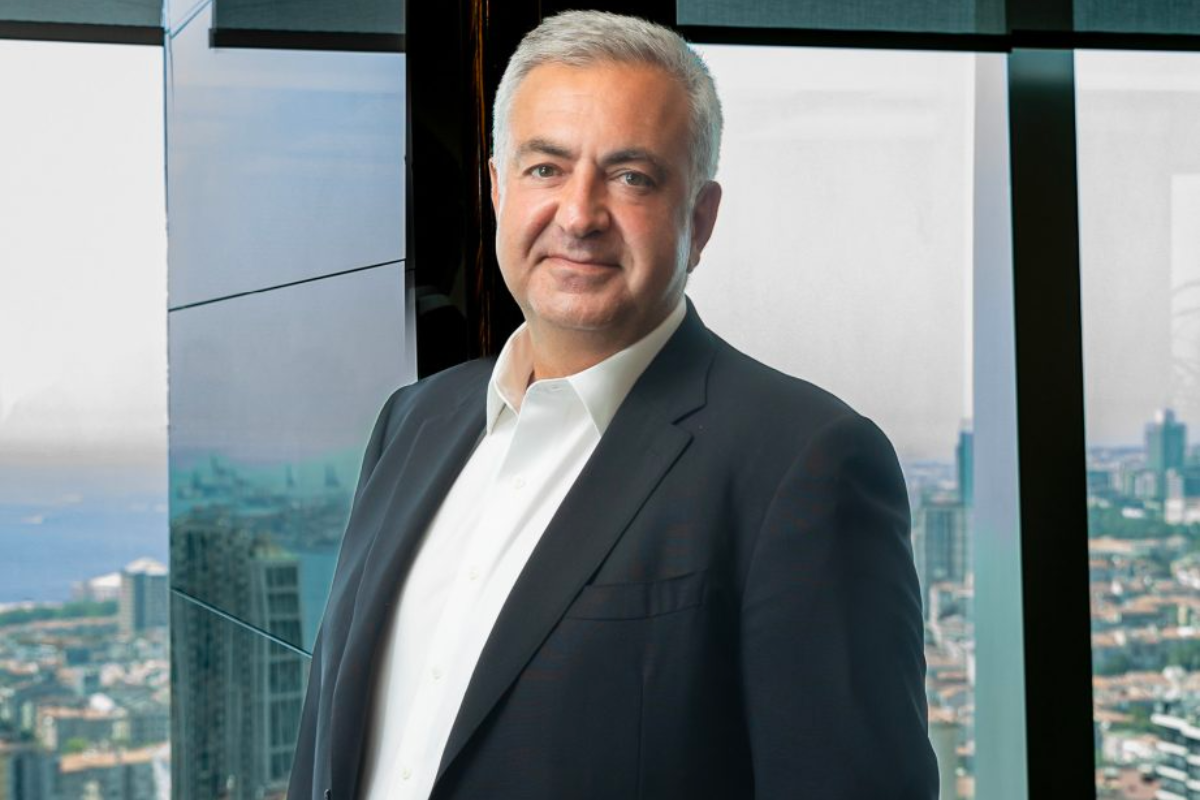When Türkiye’s largest catering group, TFI Tab Food Investments (TFI), opened the first Burger King restaurant in mainland China in 2012, the plan was to replicate the success enjoyed in its home country abroad.
The Group already had a decade of experience under its belt, having served its first Whopper to Turkish consumers in Istanbul in 1995, followed by a swift rollout of stores across the country.
“When the opportunity to become the operator of Burger King in China came to us, after some analysis, we didn’t hesitate to enter the market,” CEO Korhan Kurdoğlu tells The CEO Magazine. “China is a competitive market, but we were confident that we’d be able to deliver like we had in Türkiye.”
Kurdoğlu describes entering into the Chinese market as an “important milestone in TFI history”, a move that made the business the largest Turkish investor in China. Like in Türkiye, the brand was an instant hit; its popularity buoyed by urbanization, increasing disposable incomes and an emphasis on localization to cater to a wide customer base.
By 2020, TFI had opened 1,317 stores across the country, and as of July 2023, after the lull of the COVID-19 pandemic, this figure has increased to 1,442 stores across 188 cities. Around the same time, Kurdoğlu announced a renewed expansion strategy to open 200 new restaurants in China annually, commencing this year.
Digital Lessons
As TFI approaches its 12th anniversary in China, Kurdoğlu says there are plenty of learnings from China that are now being brought back to Türkiye. “We have gained a lot of experience around multi-country management,” he says, adding that the Group has grown into one of the world’s largest quick service restaurant (QSR) operators.
There’s one area in particular where developments in its Chinese operations are carefully integrated into its Turkish business – digitalization.
“We have learnt a lot from China on the technology side that we are now adapting into our global platform,” he says. “Nowadays, any firm that caters to large masses operates as a technological corporation.”

“Nowadays, any firm that caters to large masses operates as a technological corporation.”
Given its size, the QSR business is particularly implicated. “The industry is likewise facing a massive digitalization change,” he says.
Innovations already rolled out in its Chinese restaurants include face-recognition payments. “Our locations in China feature kiosks where you can order from your table,” he explains. “You may also pay using a QR code or NFC from interactive kiosks.”
In collaboration with AliPay, the payment is made instantaneously using a 3D camera and face recognition technology. What’s more, he adds, the order is prepared without the need for human hands.
One-of-a-kind Dining
This technology ties into an initiative the Group is set to launch to transform the dining experience – King’s Journey. “We hope to provide our customers with a one-of-a-kind dining experience in our restaurants,” Kurdoğlu explains.
After ordering via the interactive kiosks or through an app known as ‘Click-to-come’, diners then wait for their order to be served at their table, as with a traditional restaurant experience.

“We have almost two million customers around the world coming into our restaurants every day.”
“This will provide clients with a more pleasant eating environment than a typical fast food business,” he continues. “We want to give a better service to consumers who want to wait for their food at their tables rather than in a queue.”
At the same time, TFI intends to develop what Kurdoğlu calls its “cloud kitchen” model – stores that don’t offer dine-in services – instead focusing solely on delivery and takeaway. The latter now accounts for more than 50 percent of total sales in China.
China may lead the way in terms of takeaway sales, but Türkiye is not far behind, with figures recently increasing from around eight percent to 20–25 percent, Kurdoğlu explains. And in both countries, he sees plenty of potential for even more growth.
A Better Customer Experience
Becoming the local operator of such a huge American burger franchise may have been TFI’s starting point in the QSR industry, but on the heels of that success, other brands soon followed.
Today, its portfolio of brands in Türkiye include international names such as Burger King, Sbarro, Popeyes, Arby’s and Subway, alongside two of the Group’s own brands: Usta Pideci and Usta Dönerci. Outside of Türkiye and China, the Group also operates QSR restaurants in the North Macedonia, Georgia and Northern Cyprus.
Combined, such a footprint creates an impressive daily footfall through its doors. “We have almost two million customers around the world coming into our restaurants every day,” he explains.
In annual terms, that equates to 340 million people in Türkiye and almost 750 million people worldwide.

“Our ecosystem companies are state of the art, and we operate our own logistics as well.”
And Kurdoğlu has been quick to recognize the opportunities such impressive figures offer in terms of customer insights. “We’re working very heavily on data analysis and machine learning and analyzing that information in a very effective and efficient way,” he says.
As the company strives to constantly improve the quality of its service and deliver the best experience to its customers, it draws upon data drawn from its ecommerce platform, Tıkla Gelsin, a browser and web application that enables customers to log into their account and order from any of the Group’s restaurants, as well as unlock rewards and other offers.
“Through the app, we are able to customize marketing, track our customers’ behavior, trends and preferences to deliver a better customer experience,” he says.
Harnessing AI and Big Data
Tıkla Gelsin, he explains, is regularly upgraded to reflect the latest AI-based data analysis technologies. And AI and Big Data technology is aggressively employed across all touchpoints of the business.
“We track our customers’ footprints in restaurants and takeaway apps and accurately analyze the data while building personalized campaigns and determining the most effective and accurate communication channels,” he says.
The Group is also deploying AI-driven menu engineering to stay ahead of the competition, identify gaps in the market and find new market opportunities. “We continuously monitor how our restaurants are doing and make immediate recommendations,” he says.

“Our structure is very adaptable and dynamic.”
For instance, when such insights reveal a particular restaurant or brand is underperforming, the company is able to take prompt action to reverse the trend.
“Our structure is very adaptable and dynamic,” Kurdoğlu explains. “Depending on the scenario, we have the flexibility and capacity to make a choice in the morning, implement it at noon and halt it the next day. There are personalized solutions with exact calculations at each step.”
In other words, technology means that the business is no longer a one-size-fits-all model. “We no longer have a single type of offer,” he says. “We now prepare several, based on the hours, places and person.”
Future Focus
An eye on tomorrow’s opportunities while maintaining a laser-like focus on today’s operations is a hallmark of his father, Ertuğrul Kurdoğlu, who co-founded the business with his two sons, Kurdoğlu and his brother, Erhan, who is also Chair of the company.
The elder Kurdoğlu, who passed away in 2013, made his name when his fledgling business, Ata Insaat, was awarded the contract to build the Atatürk Dam, the sixth largest in the world, in the early 1980s. Ata Insaat grew into the Ata Holding Group, the parent company of TFI.
His sons have clearly inherited their father’s future focus; Kurdoğlu says the company has no plans to put the brakes on any expansion.

“We will continue to open up restaurants in a format relevant to today’s technology age.”
“When you consider the population of China and Türkiye, there is a huge white space in front of us,” he explains. “So we will continue to open up restaurants in a format relevant to today’s technology age.”
He’s not ruling out pursuing new opportunities in new geographies, either. “In a few years, we’re hoping to explore other markets where we believe we can create a difference and bring a competitive edge as well,” he says.
After all, as Kurdoğlu commented in a statement in mid-2023, “If you have achieved success in Shanghai, you will succeed everywhere. Now that we are more ambitious, we will also conduct business in developed nations.”
A Unique Ecosystem
What gives the company a head start in these targets is how it has grown into a platform that can be transplanted to any potential market. “We are now a multi-brand, multi-geography restaurant operating company,” he says. “It’s a total solution that we can go anywhere in the world with.”
Particularly unique is its backward-integration structure. “We produce our own meat, potatoes, salad, bread and distribute them to our restaurants,” Kurdoğlu explains.
“Our ecosystem companies are state of the art, and we operate our own logistics as well,” he continues. “It has allowed us to become a holistic company able to innovate and deliver every part of the QSR.”

“We are now a multi-brand, multi-geography restaurant operating company.”
This self-sufficiency enables the Group to fulfill many of the Group’s supply needs internally. Cattle are bred at a 40,000-square-meter facility in Amasya, a city to the north-east of the Turkish capital, Ankara, and a fully integrated production system means all meat products are processed and packaged onsite.
The Group also owns and operates the country’s largest potato production and processing facility. At full capacity, the site can churn out 80,000 metric tons of ready-to-cook potatoes a year, which are then shipped to restaurants in both Türkiye and China. Potatoes are also grown on the same land.
Ekmek Unlu Gıda is a subsidiary of the Group that has been established to supply salads and bakery products, such as hamburger buns, paninis, baguettes and pizza dough. Along the way, the company has grown into one of Türkiye’s largest bread factories and supplies not only TFI restaurants, but also some of the country’s largest supermarket chains.
Definition of Success
How does Kurdoğlu measure success for himself and for the company? “First and foremost, success for us is about being happy with what you are doing, with your business and your life,” he explains. “To reach that point, you need an environment that makes people feel that way.”
“This requires fairness in the culture, as well as objectivity and opportunity to allow everybody to perform. As a leader, you need to be transparent in what you are doing and also be prepared to hand people the power to be able to change things for the better.
“A successful company in our eyes is one where people are constantly creating and adding and are also content with themselves.”
While own-grown produce such as french fries are exported to China, Kurdoğlu explains that it was never their intention to replicate the vertically integrated model already established in Türkiye. “We knew we would find vendors to work with and partner with,” he explains.
However, its food ecosystem has allowed the Group to set high expectations from their local partners. “With our experience in production and logistics, we’ve been able to set the gold standards that are needed,” he says, adding that, at the beginning of its journey in China, suppliers were invited to visit the various facilities in Türkiye to see firsthand the type of company TFI was and what they were capable of.
The experience has also allowed Kurdoğlu to identify the partners who really align with the Group’s vision and who are prepared to invest in long-term partnerships. “This is not a daily transaction, nor a monthly or yearly one,” he says. “These are relationships that endure for many years, even decades.”
Adapt and Innovate
Despite its multinational success, TFI remains at its core a family business. “My brother and I are very complementary to each other and our teams work in harmony,” he explains. “We solve many problems, adapt to changing customer needs and are able to always deliver up-to-date and exciting experiences to our guests in our restaurants.”
It’s this culture that he believes sets the Group apart from its competitors. “Culture is the most important element,” he says. “We have a set of values where it’s not about what you’ve invented, but rather the potential to repeat that and come up with a solution that is relevant to the current climate.”
In other words, it’s TFI’s ability to adapt and innovate for the future that gives the business a leading edge in the market.

“We are not bound by what we have done, instead we are looking to the future to drive the changes that the new environment will demand from successful companies.”
“What sets us apart is that we are not bound by what we have done, instead we are looking to the future to drive the changes that the new environment will demand from successful companies,” he explains.
For Kurdoğlu, the future looks nothing but bright. “TFI has a very big successful road in front of us,” he says. “As we continue to grow with our organization, our people and our culture, we’ll be able to set the pace as the leading company in the QSR business.”
TFI In Numbers
738: Number of Burger King restaurants in Türkiye
1477: Number of Burger King restaurants in China
2215: Total Number of Burger King restaurants
3049: Total Number of TFI restaurants
116: Number of Sbarro restaurants in Türkiye
112: Number of Arby’s restaurants in Türkiye
321: Number of Popeye’s restaurants in Türkiye
94: Number of Subway restaurants in Türkiye
34: Number of TFI restaurants in North Macedonia, Georgia and Northern Cyprus
40 million: Hamburger buns produced monthly by Ekmek Unlu Gıda
90,000: Number of metric tons of french fries Atakey factory processes annually
2 million: Number of customers the company serves daily around the globe
55,000: Number of people TFI employs in Türkiye and China
This story was first published in November 2023




